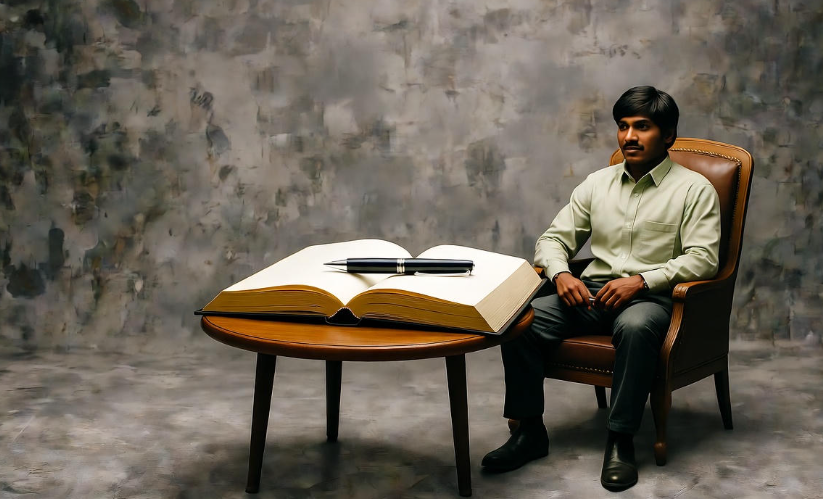Managing money is not just about earning more; it’s about controlling what you have and making it grow. Many people think that mastering finances is complicated, but the truth is—it starts with simple daily habits. Small, consistent actions can lead to massive improvements over time. Here, I’ll share daily practices you can adopt to gain control over your money and build long-term financial security.
Track Your Spending Every Day
One of the most effective ways to take control of your finances is to know where your money goes. Spend just 10 minutes daily to record your expenses. You don’t need a fancy app, although apps like Mint, YNAB, or even a simple Excel sheet can help. What matters is consistency.
By tracking your spending:
-
You identify unnecessary expenses
-
You notice patterns in your spending habits
-
You create opportunities to save more without feeling deprived
Tip: Keep receipts or use your bank app notifications. Even small purchases, like a coffee or snack, matter in the bigger picture.
Create a Daily Budget Routine
Budgeting isn’t just a monthly task—it’s a daily habit. Every morning or night, review your budget for the day. Ask yourself: “What’s necessary today, and what can wait?” This simple reflection reduces impulse spending and gives you better control over your financial decisions.
Example of a Simple Daily Budget Table
| Expense Type | Daily Limit (USD) | Notes |
|---|---|---|
| Groceries | 15 | Stick to essentials |
| Transport | 5 | Only needed trips |
| Entertainment | 3 | Movie, coffee, small treats |
| Savings | 10 | Automatic transfer if possible |
Even with small amounts, this habit helps you stay aware and disciplined.
Automate Your Savings
It’s easy to say “I’ll save later,” but “later” rarely comes. Make saving automatic. Set up your bank account to transfer a portion of your income to a savings account every day, or even weekly. Automating savings reduces temptation and builds a safety net without stress.
Human touch: Start with just $1–$5 daily. Over a year, even tiny amounts grow surprisingly fast thanks to compound interest.
Review Your Financial Goals Daily
Daily review of financial goals keeps you motivated. Write down what you want: a new car, debt freedom, an emergency fund, or retirement savings. Each day, check your progress. Ask: “Did I make a decision today that moves me closer to this goal?”
✅ Benefits:
-
Keeps you focused
-
Helps prevent unnecessary spending
-
Encourages smarter choices
Cut Small, Repeated Expenses
Tiny, regular expenses often add up more than big purchases. Daily habits like making coffee at home, packing lunch, or skipping unnecessary subscriptions can save hundreds per month.
Example Table: Daily Savings Potential
| Habit | Cost Saved Daily (USD) | Cost Saved Monthly (USD) |
|---|---|---|
| Coffee outside | 3 | 90 |
| Lunch at a restaurant | 7 | 210 |
| Unused subscription | 2 | 60 |
As you can see, small changes compound into significant savings.
Practice Mindful Spending
Mindfulness isn’t just for meditation—it works for money too. Before buying something, pause and ask:
-
Do I really need this?
-
Can I get it cheaper elsewhere?
-
Will this purchase help me reach my goals?
By doing this daily, impulse purchases drop dramatically.
Keep a Financial Journal
Writing about your finances daily helps you understand your habits and emotions around money. Jot down:
-
What you spent
-
How it made you feel
-
How it aligns with your goals
Over time, this journal becomes a roadmap for smarter financial decisions. You start noticing patterns and triggers, like shopping when stressed or bored.
Review and Adjust Your Debt Daily
Debt can be overwhelming, but small daily habits make it manageable. Check your credit card balances, loan repayments, or any outstanding bills daily. Even if you don’t pay daily, awareness prevents late fees and helps you plan extra payments strategically.
Pro Tip: Try the “debt snowball” method. Pay off smaller debts first. It gives you motivation to continue paying off larger debts.
Educate Yourself About Money Daily
Daily learning doesn’t have to be long or complicated. Read one article, watch a short video, or listen to a finance podcast every day. Over a year, this adds up to a huge amount of knowledge. Financial literacy helps you make better investment, saving, and spending decisions.
Example Daily Learning Plan
| Day | Activity | Time |
|---|---|---|
| Monday | Read a finance article | 15 min |
| Tuesday | Watch a YouTube finance tip video | 10 min |
| Wednesday | Listen to a money podcast | 20 min |
| Thursday | Review personal budget | 10 min |
| Friday | Read about investing basics | 15 min |
| Weekend | Reflect on weekly financial decisions | 30 min |
This tiny habit makes you smarter about money without overwhelming your schedule.
Invest a Small Amount Every Day
Even $1 per day invested can grow into significant wealth over years. Daily habit: check your investment account, read a news update, or buy a small fraction of stocks or mutual funds. The key is consistency and compounding.
Use Cash for Some Purchases
Using cash for small daily purchases makes spending tangible. When money physically leaves your hand, you’re more aware than swiping a card. This daily habit can cut unnecessary purchases drastically.
Plan Weekly Expenses Daily
Each night, plan the next day’s expenses. Include meals, transport, entertainment, and small treats. It sounds tedious, but this daily planning reduces stress, prevents overspending, and gives you a clear picture of your financial standing.
Celebrate Small Wins
Money habits can be boring, but celebrating milestones keeps you motivated. Did you save $50 this week? Did you avoid an impulse buy? Acknowledge it. Small daily rewards reinforce positive behavior.
Use Technology Wisely
There are apps that track spending, set reminders, and even round up purchases for savings. Make it a habit to check these apps daily. Technology can act like your personal finance coach if used consistently.
Stay Accountable
Share your financial goals with a trusted friend or family member. Daily check-ins, even short messages, increase your chances of sticking to your plans. Accountability adds a social element to financial discipline.
Daily Reflection on Money Mistakes
Everyone makes financial mistakes. The habit of reflecting daily helps you learn fast. Ask yourself: “Did I make a bad financial choice today? What can I do differently tomorrow?” This helps prevent repeating mistakes and keeps your financial journey progressive.
Visualize Your Financial Future Daily
Spend a few minutes each day imagining your life with financial freedom. Picture paying off debts, owning your home, traveling, or retiring comfortably. Daily visualization keeps your goals vivid and your motivation high.

FAQs
Q1: How long does it take to see results from daily financial habits?
A: Consistency is key. Some improvements, like noticing unnecessary spending, can appear within a week. Savings and investment growth may take months, but daily habits compound over time for substantial results.
Q2: Can I master my finances if I earn a low income?
A: Absolutely! Financial habits are independent of income. Smart budgeting, daily tracking, and disciplined saving work for anyone, regardless of income level.
Q3: What if I miss a day of tracking or budgeting?
A: Don’t worry. Missing a day isn’t failure. Just resume the next day. The habit builds with consistency, not perfection.
Q4: Are daily financial habits only for adults with families?
A: No. Anyone can benefit—students, young professionals, or retirees. Starting early gives you a massive advantage over time.
Q5: How do I make these habits stick?
A: Keep it simple, realistic, and enjoyable. Start small—track one expense, save a little daily, or reflect for 5 minutes. Gradually expand as it becomes natural.
Conclusion
Mastering finances isn’t about sudden wealth or complicated strategies. It’s about daily choices, small habits, and consistent effort. By tracking spending, budgeting daily, automating savings, educating yourself, and reflecting, you take control of your money. Over time, these habits compound, turning financial stress into freedom.
Remember, the key is to start small, stay consistent, and be kind to yourself along the journey. Your future self will thank you for the small steps you took today.




